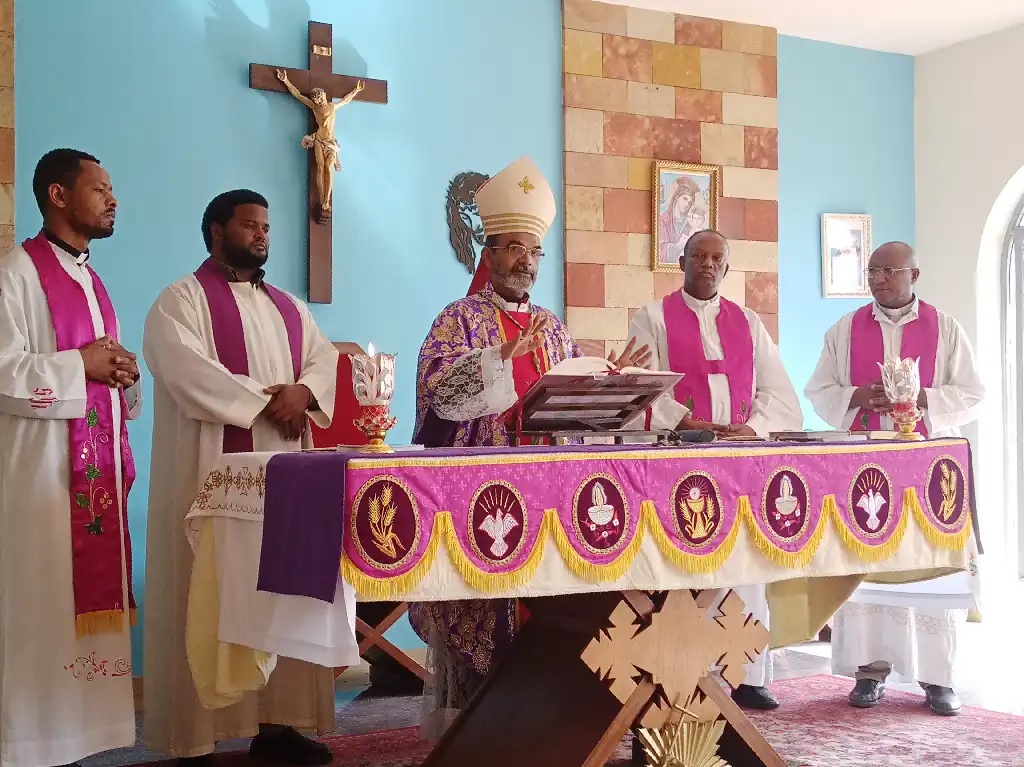A Bishop in Ethiopia has issued an impassioned plea for the resumption of talks between the government and rebel forces aimed at ending a conflict that has cost hundreds of lives and displaced tens of thousands of people.
Bishop Varghese Thottamkara, Vicar Apostolic of Nekemte, told Aid to the Church in Need (ACN) that people are crying out for peace between the government and rebel Oromo and Gumuz ethnic tribes.
The bishop, whose vicariate in west Ethiopia has been described as the epicentre of the rebellion by the Oromo Liberation Army (OLA), highlighted the mass displacement of people, the constant threat of kidnap for ransom and curfews imposed on Nekemte city and elsewhere.
Speaking on a visit to ACN’s UK national offices, in Sutton, Surrey, Bishop Thottamkara said: “People are so fed up of the suffering. They need a solution and so we hope something will come out of these talks.”
He added: “Both the government and the tribes need to think of the good of the people.
“The government needs to say to the rebels something besides: ‘Put down your weapons.’ These people need to be reintegrated into the police and the army. They need to be integrated into society.”
The OLA last week accused the government of carrying out a military offensive against them after the first round of peace talks earlier this month ended without resolution.
But, urging the negotiators to be persistent, the bishop stressed the impact of the conflict on his own diocese.
The bishop, who is leaving Nekemte next month after nine years to become Bishop of Balasore, India, said that 20 of his churches – about 20 percent of the total – had been forced to close for security reasons, with many of his priests at risk because they are from the Oromo tribe.
The bishop described two incidents where his life was in danger – one involved a car ahead of him on the road coming under fire, and on another occasion he was held up by heavily armed rebels in a town he was passing through.
Bishop Thottamkara described priests and Sisters being abducted for ransom and having to abandon parishes including Shambu, Anger Guten and Kamashi.
He said: “It is very painful to know that our people have been through many problems but have been unable to receive the Sacraments.”
The bishop said that in the absence of priests many faithful were reliant on catechists and he went on to praise Aid to the Church in Need for funding their training and costs.
He also thanked the charity for Mass stipends for poor and persecuted priests and ongoing clergy formation programmes.





